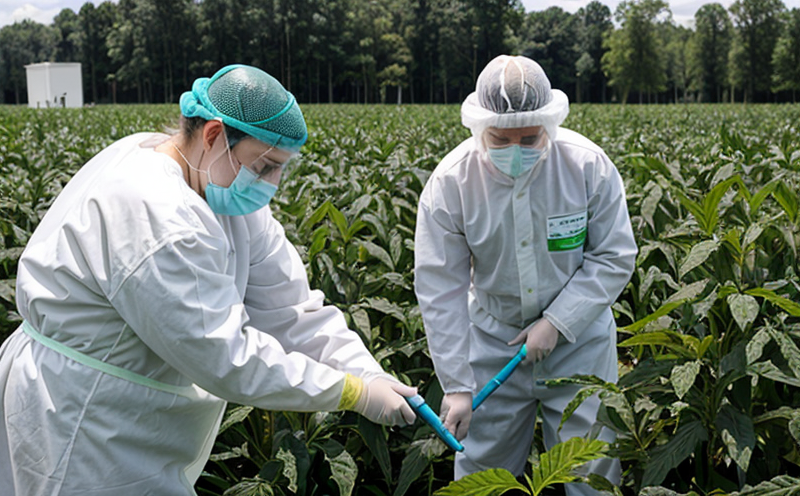OECD 301 Ready Biodegradability Testing of Biocontrol Agents
The OECD 301 ready biodegradability test is a critical step in the environmental safety assessment of biocontrol agents. This testing ensures that the active ingredients used in biocontrol formulations do not persist in the environment, thereby minimizing any potential risks to non-target organisms and ecosystems.
Understanding the degradation pathway of these compounds helps in identifying their fate in soil or water systems. The test aims to determine whether a substance can be completely degraded by microorganisms within a specified time frame under defined conditions. This process is essential for ensuring that biocontrol agents are both effective against pests and safe for use.
The OECD 301 method involves incubating the test substance with soil or water in accordance with prescribed concentrations, temperatures, and times. The outcome of this test provides valuable information about the environmental behavior of a particular compound, aiding in its registration and regulatory approval process.
Compliance with international standards is crucial for both industry and regulators. By adhering to OECD 301 guidelines, laboratories ensure accurate results that are internationally recognized, facilitating smoother trade and compliance processes.
In summary, the OECD 301 ready biodegradability test is a cornerstone of environmental safety evaluation for biocontrol agents. It ensures that these compounds do not accumulate in the environment, thus safeguarding both human health and ecological balance.
Applied Standards
| Standard | Description |
|---|---|
| OECD 301B - Ready Biodegradability Test: Closed Bottle Inoculation Procedure | This method assesses the biodegradation of a substance in soil or water under controlled conditions. |
| ISO 9278 - Soil Quality - Determination of Biochemical Oxygen Demand (BOD) by Modified Rapid Consumption Method | Used to measure the rate at which organic matter is consumed by microorganisms, providing insights into biodegradability. |
Scope and Methodology
| Phase | Description |
|---|---|
| Preparation of Test Substances | The biocontrol agent or its active ingredient is prepared according to the OECD 301 guidelines. This includes dissolving it in appropriate solvents and adjusting concentrations. |
| Inoculation with Soil or Water | The test substance is mixed with either soil or water, depending on the nature of the biocontrol agent being evaluated. |
| Incubation Periods | The mixture is incubated for a specified period to allow microorganisms to degrade the substance. |
| Determination of Degradation | The extent of degradation is determined by measuring changes in parameters such as pH, conductivity, and specific gravity over time. |
| Analysis and Reporting | Final results are compiled and reported according to OECD guidelines. This includes a comprehensive analysis of the test data and its implications for environmental safety. |
Customer Impact and Satisfaction
- Enhanced regulatory compliance through accurate testing results recognized globally.
- Simplified product development by identifying potential issues early in the process.
- Increased market access to international markets with stringent environmental regulations.
- Improved reputation among consumers who prefer environmentally friendly products.





